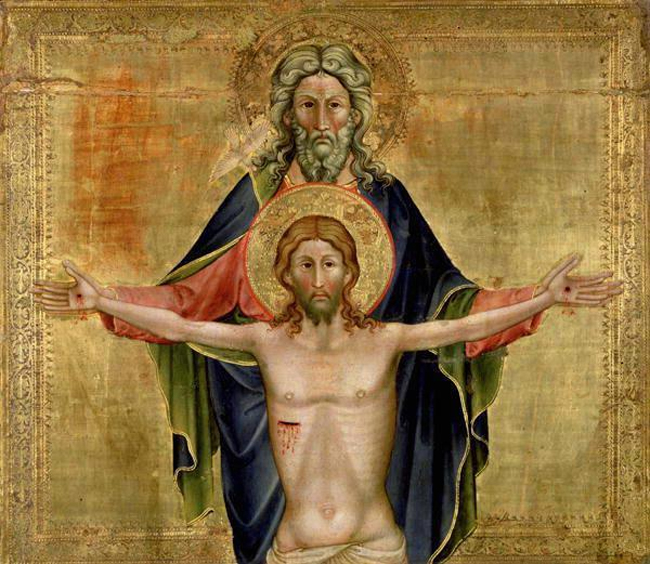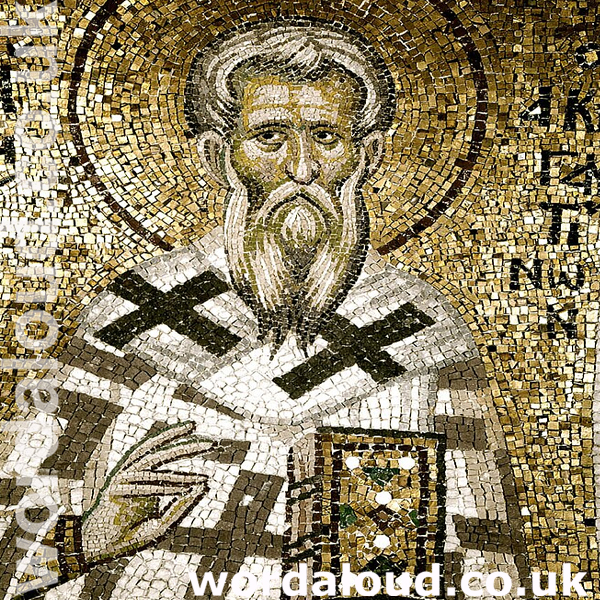Christian Art | Jesus Lifts Our Souls From Purgatory | Prayer For All Christian Souls
Office Of Readings | Week 32, Saturday, Ordinary Time | A Reading From A Homily Of A Second-Century Author | Let Us Seek Righteousness So That In The End We Are Saved
‘Let us persevere in the practice of holiness so that in the end we are saved.’
The homily, continued, belongs to the early tradition of pastoral exhortation in which Christian teachers address communities facing both internal moral uncertainty and external cultural pressures. The homilist begins by locating himself within the same condition as his hearers. His confession of sin and susceptibility does not function as rhetorical modesty but as a reminder that Christian life is undertaken together. The salvation of each becomes bound up with the fidelity of all. This interdependence reflects an early understanding of the Church as a community shaped by shared discipline rather than by individual achievement.
The opening call to ‘find ourselves among those who give thanks’ sets the frame for this reading. Thanksgiving is not presented as an emotional response but as a marker of orientation. To give thanks is to recognise God’s agency and to situate oneself within that recognition. Service of God follows as its natural expression. The contrast with the ‘wicked who are judged’ is not elaborated; it serves instead to establish the seriousness of the homilist’s appeal.
A central strand of the sermon concerns penance and attentiveness. The homilist describes how wrongdoing may go unnoticed because of ‘inner duplicity’ or ‘lack of faith’. These terms indicate a concern with the interior life. Sin is not only an act but also a failure of perception. The mind becomes clouded, and the capacity to recognise one’s own conduct is diminished. Penance, therefore, is portrayed as a sober reckoning with reality — a redirection of attention — rather than as a dramatic public gesture.
The homily moves from diagnosis to the call for righteousness. The link between righteousness and salvation reflects an early Christian moral logic in which conformity to God’s will prepares the believer for participation in divine life. The homilist acknowledges the tension between present experience and future promise. The righteous may suffer; the wicked may prosper. Yet the homily holds to an eschatological perspective: reward comes ‘in the end’, and the timing of this reward ensures that virtue is pursued for its own sake rather than for immediate advantage. This argument appears in several early Christian texts and indicates a pastoral concern to sustain communities facing hardship or marginalisation.
The image of the righteous waiting for their ‘harvest’ complements the earlier discussion of penance. Both themes emphasise endurance. Human life is seen as a period of formation in which motives and dispositions are tested. Present trials are not interpreted as abandonment but as the context in which fidelity is confirmed.

A Reading From A Homily Of A Second-Century Author | Let Us Seek Righteousness So That In The End We Are Saved
Let us therefore find ourselves among those who give thanks, those who have served God, and not among the wicked who are judged. Although I myself am a sinner in all things, and still ensnared by the devil, I aim for righteousness and hope to get close to it in the end; for I fear the judgement that is to come.
So, brothers and sisters, after we have heard the words of the God of truth, I read you this exhortation. I hope to turn your souls’ full attention to what has been written, so that you bring salvation not only to yourselves but to me as I read the word of God to you. I beg for this reward: that you should do penance wholeheartedly and thus bring salvation and life on yourselves. If we do this then we shall be able to show an example to all the young who want to turn their lives towards the love and goodness of God. And if someone sees our folly and tries to turn us from evil to righteousness, let us not be angry or indignant; for often when we do evil we do not pay attention to the fact – either from inner duplicity or from lack of faith – and our minds are clouded by our worthless desires.
Therefore let us be righteous so that in the end we may be saved. Blessed are those who obey these precepts: even if they suffer evil in this world for a short while, they will reap a harvest of eternal life. Let the good man not be saddened if he suffers present troubles: a blessed time awaits him, when he will be raised to life and will rejoice with his fathers through an untroubled eternity.
We should not be perturbed if we see the wicked living in comfort while the servants of God suffer want. Brothers and sisters, let us be firm in faith: in this life we are suffering trials that come from the living God, so that we may wear crowns in the next life. None of the righteous receive the fruits of their goodness instantly, but all have to wait for them. If it were otherwise, if God gave quick rewards for righteousness, then it would not be piety that drove us to good acts but a simple matter of business. We would see virtue not as a good thing but as a profitable thing. For this reason the judgement of God shakes a spirit that is not filled with righteousness and loads chains upon it.
To the one invisible God, the Father of truth, who sent us our saviour as the founder of our immortality and showed us the truth through him and the way to eternal life – to God be glory forever and ever. Amen.
Christian Prayer With Jesus Christ
God of truth and eternal light,
you call us to walk in righteousness
and to set our hope not in passing comforts
but in the glory prepared for your faithful ones.
Purify our hearts of duplicity,
steady our steps in the hour of trial,
and teach us to welcome correction
as a gift that leads us back to you.
Give us the grace to persevere in goodness,
to bear present burdens with trust,
and to look not with envy but with compassion
upon all who have yet to turn toward your mercy.
Draw us into the company of the blessed,
who reap with joy the harvest of eternal life,
and crown our striving with the peace
that comes from your beloved Son,
the source of immortality and the Way to life everlasting.
Through Christ our Lord.
Amen.
Glossary Of Christian Terms
Duplicity – A divided or insincere interior disposition that blinds one to the truth and hinders repentance.
Exhortation – A solemn urging or encouragement toward moral or spiritual action.
Immortality (Christian sense) – Not merely unending existence, but the fullness of divine life granted through Christ.
Judgement – God’s definitive assessment of each person’s life; both a warning and a promise of justice.
Penance – Interior and exterior acts expressing repentance and conversion of life.
Perseverance – The sustained commitment to righteousness despite suffering or delay in receiving reward.
Righteousness – Alignment of one’s life with God’s will in faith, conduct, and intention.
Temptation/Trial – Difficulties permitted by God for the testing, strengthening, or purification of the faithful.
Transience – The temporary nature of earthly joys, sufferings, and conditions, contrasted with eternal life.
Virtue – Habitual disposition toward good action; in the homily, understood as valuable not for reward but for its conformity to God.








